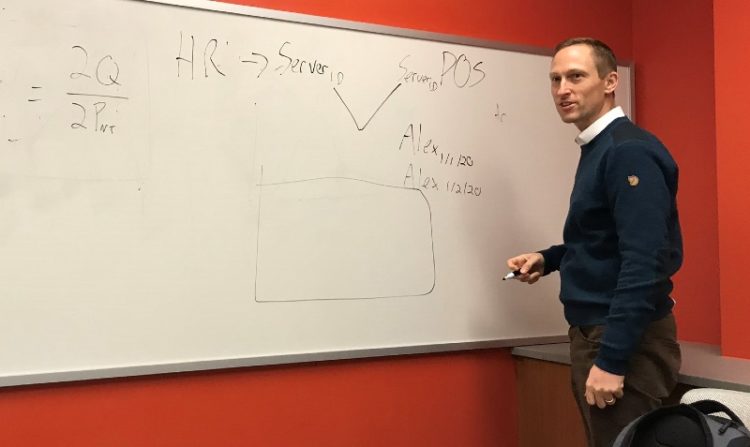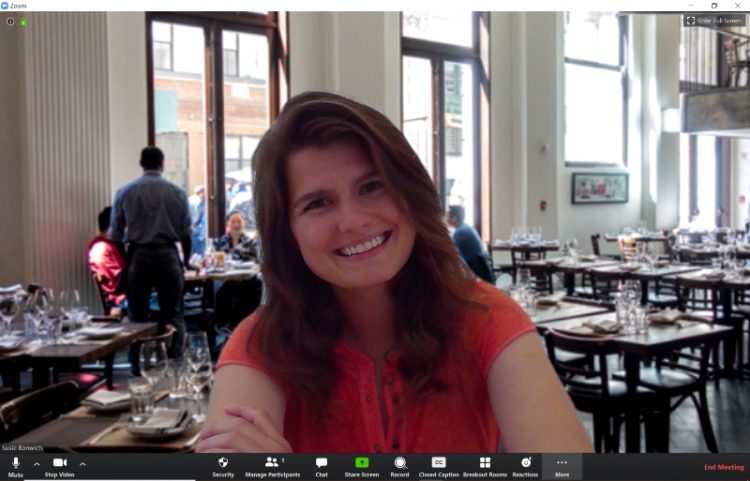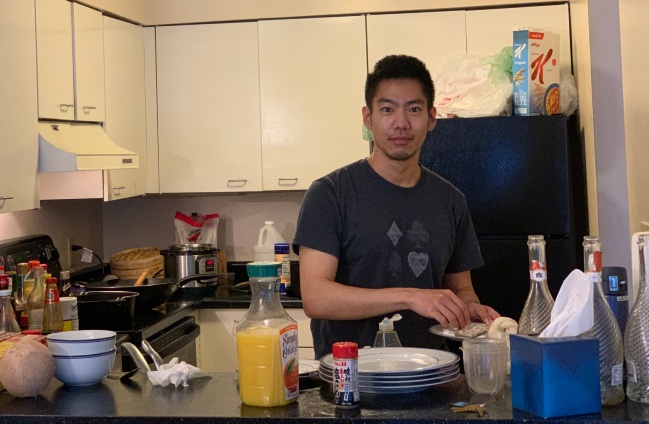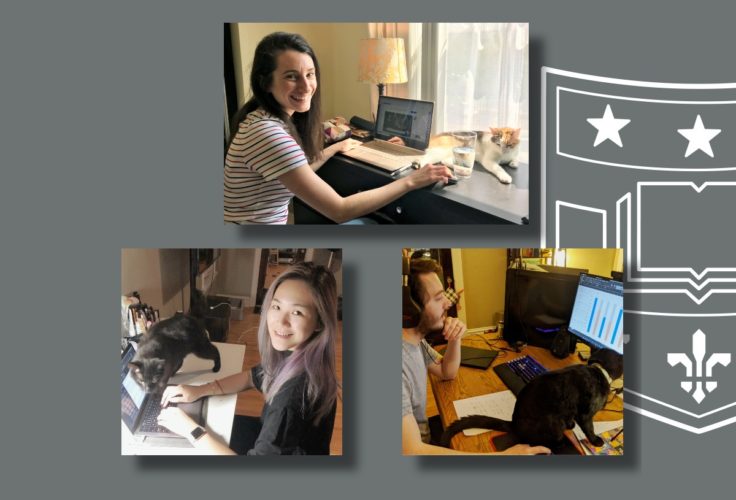Alex Ignatius, MBA ’21, wrote this on behalf of her team from the Center for Experiential Learning for the Olin Blog.
The restaurant industry was hit hard as the coronavirus swept through the United States. Some businesses shuttered their doors, others converted their operations to curbside pick-up and delivery. Nearly everyone was forced to make deep cuts to their front-of-house and culinary workforce.
As part of Olin’s Center for Experiential Learning, our consulting team analyzed how a leading New York-based restaurant group should most effectively re-open, recruit staff, attract customers and remain profitable coming out of the COVID-19 crisis.

Over the span of four months, and with support and guidance from Lamar Pierce, professor of organization and strategy at Olin, our team of MBAs and master’s students in customer analytics and financial analytics quickly immersed ourselves in the complex business of hospitality to provide objective recommendations on the viability of our client’s current policies.
The biggest hurdle our team had to overcome during this project was: How do you maintain team camaraderie and productivity during a global pandemic? It’s a challenge every team no doubt faced as quarantine took hold around the world. Three team members from China had spent the previous months worrying about their families under lock-down back home, only to have the tables turned as strict shelter-in-place orders took effect in St. Louis and across the United States.
“Growing up as the daughter of a restaurant critic, and working in the restaurant industry for a decade, I was very excited to be a part of a project that really dove into the issues of compensation, mission and communication with the guest. Add to that the pandemic that traumatically shut down most hospitality establishments, we soon became involved with a project much larger than just the client themselves, but with the entire hospitality industry.”
Susie Bonwich, MBA ’21

During moments of crisis it is important for leaders to “bring the weather” – to set the tone for how to adapt and move forward in the face of uncertainty and disruption. As a team lead, I channeled this mantra – preparing very intentionally for each internal and client-facing meeting to be sure that our meetings were a highlight of the team’s day—and the client’s. One team member joined each client call “sitting” in a different one of their restaurants. This brought a big smile to everyone’s face when we logged in each week.
Our cats also became important members of our extended team. Their analytics skills, however, were not up to snuff (see photo at top: clockwise from top, Alex Ignatius, MBA ’21, with Olivia; Steve Lach, MBA ’21, with Queijo; and Vanessa Liu, MSCA ’20, with Happy).

The second key learning is how moments of crisis can bring incredible opportunity. Our project began as an exploratory mission for this restaurant group to look at some of the policies and decisions they had implemented over the past five years.
“It’s a rewarding experience to work on such a challenging but productive project. I learned a lot in the process of working with people from different backgrounds and tackling a real-world business issue together.”
Jinghui Yan, MSCA ’20
But once COVID-19 set in and the disastrous impact it was having on the restaurant industry became clear, our work on behalf of the CEL quickly became elevated to a key strategic priority. What started as a simple CEL project became one of the most important questions on everyone’s minds: How do restaurants think about re-opening and re-recruiting their laid-off employees after the quarantine lifts? As a business, how do we balance purpose and compensation for our employees, and how do we think about the guest experience and the reality of reduced covers when we must reconfigure dining room layouts to accommodate new social distancing standards?

We were able to make a meaningful difference to a business that desperately needed help during a time that was isolating, lonely and distressing. This CEL project gave us a sense of purpose when so many of us were feeling trapped.
“This project gave me an opportunity to apply what I have learned in class to empower real-world business decisions. There is no better way to experience business and implement your skills than a practicum project.”
Vanessa Liu, MSCA ’20
Our team rose to the challenge, conquered the complexities of analyzing ambiguous data, extracted significant insights and presented a final report with actionable recommendations to an audience of 25 client team members and WashU faculty over Zoom.
As shared by a professor and mentor to the team, “This is the work caliber of a full-time consulting organization working three-plus months at 80 to 100 hours a week—and you all did so with significantly less time and in the midst of a global pandemic that shifted the operations of (the client) as well as the industry as a whole.”
This CEL project was significant to our personal and professional development at Olin and is the type of real-world business experience that will continue to inform our work long after graduation.



